In my debut novel, The Witch Haven, 17-year-old seamstress Frances Hallowell is whisked off to Haxahaven Academy, a school for witches disguised as a tuberculosis sanitarium. Frances’s world of 1911 New York resembles my own adolescence in suburban Utah in exactly zero ways, but there was nothing I longed for more as a teenager than to be taken away to a magic boarding school. In my teenage fantasies, I lived in a crumbling castle and wore a cute plaid skirt and there was also someone (was he a mysterious boy with curly hair and piercing eyes? That’s my business!) who would teach me witchcraft.
Haxahaven, the school in The Witch Haven, isn’t in an old castle, rather an old monastery, and the uniforms are capes rather than flippy little skirts, but the general principles of the fantasy still apply (is there a boy with curly hair and piercing eyes… perhaps). But for Frances, magic boarding school is hardly a sanctuary. Oppressive, claustrophobic, and frustrating, Haxahaven is hiding secrets under its sparkling façade. Perhaps that’s the most fascinating thing about schools of magic trope, for every enviable uniform and swoon-worthy magical classmate, there’s something just around the corner, power that could be your saving grace or eat you alive.
I’m hardly the first writer to be consumed with the idea of a magical academy. Perhaps it’s the eternal fantasy of possessing power, or perhaps it’s the dream of never getting a D in calculus, even after studying (and crying a little) with your dad over the dining room table.
Below you’ll find recommendations for books that take place at magical schools, some more wish-fulfilling than others. I’d happily attend Brakebills, but know for certain would die almost immediately in Scholomance. It’s probably for the best I was never whisked off to the boarding school of my dreams. My suburban constitution could never have survived in a drafty castle, and boys with piercing eyes and big promises should historically never be trusted. I’ll stick to reading and writing about magic schools.
Brakebills College for Magical Pedagogy — The Magicians by Lev Grossman
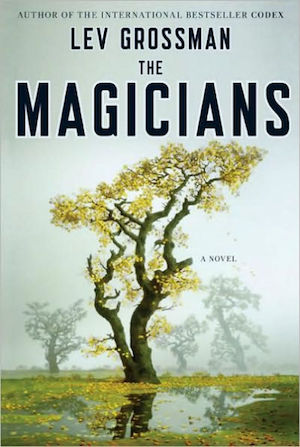
The Magicians is an adult fantasy series opener that turns the magic school genre on its head. Presenting magical education as equal parts fantastical and deeply tedious and frustrating, it’s difficult to read Grossman’s work without vividly picturing yourself sitting in a Brakebills classroom learning about the metaphysics of magic. Featuring high fantasy elements reminiscent of Narnia and one of my all-time favorite Sad Boys of literature Quentin Coldwater, The Magicians drops you in a magical world running adjacent to the real one. A deeply creepy villain and magic college parties only make things more fun. There’s a reason this is a perennial favorite.
Scholomance — A Deadly Education by Naomi Novik
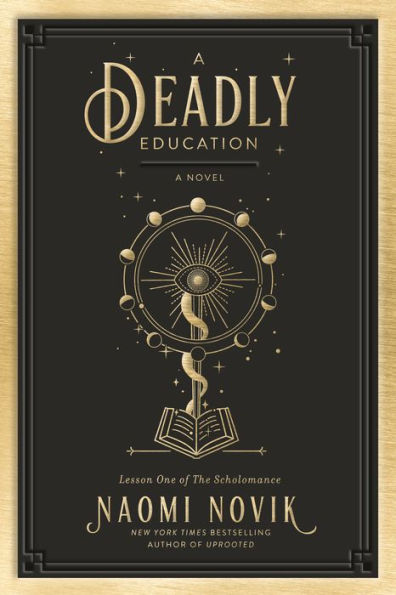
Oft compared to The Hunger Games, A Deadly Education takes place at Scholomance, a magical academy infamous for killing its own students. Students at Schoolmance are given one choice: graduate or die. No holidays, breaks, dances, or teachers, Novik forces readers to ask themselves “maybe high school wasn’t so bad after all?” A prickly cast of well-rounded characters, a chosen-one trope that feels completely fresh, and the sense of creeping dread threaded through every page make this a book easy to read in a single sitting. No one writes atmosphere like Novik.
Sinegard — The Poppy War by R.F. Kuang
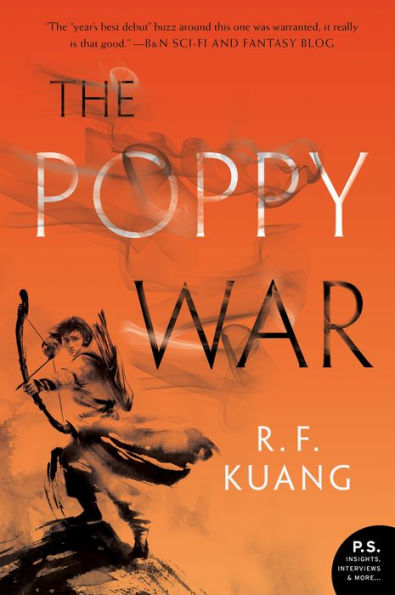
When Rin, a war orphan, aces an empire-wide test that lands her in The Academies, she’s as shocked as everyone else. Taken to Sinegard, the most elite military academy in Nikan, she soon finds not only is she extraordinarily gifted, her gifts have made her a target. A thrilling fantasy set in a world so vivid you can feel it, The Poppy War stressed me out so badly I had to keep getting up and walking around my room. Kuang deftly intertwines military history, magic, and vengeful gods into a book so good it deserved to be called, not only one of the best fantasies of 2019, but of all time.
Osthorne Academy of Young Mages — Magic for Liars by Sarah Gailey
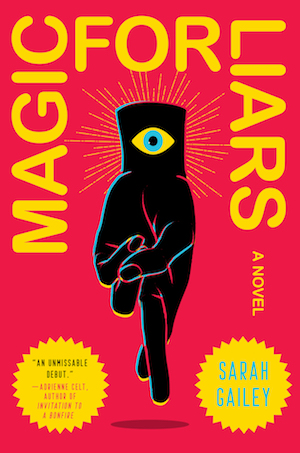
Is there anything better than a detective with both razor-sharp claws and wit? Magic for Liars turns the chosen one trope upside down, as Ivy Gamble, an investigator, is brought into Osthorne Academy of Young Mages, a school she never attended, but where her sister works, to solve a grisly murder. Magic For Liars peels back the sparkly fun of magic classes an enchanted love letters to reveal something pointedly less sparkly underneath. Ivy Gamble doesn’t have magic, she was never before invited into the world her sister inhabits, but still, it’s up to her to save them all. A heart-pounding thriller, Magic for Liars is a mystery for both true crime and fantasy lovers.
Eastern School of Solar Magic — The Nature of Witches by Rachel Griffin
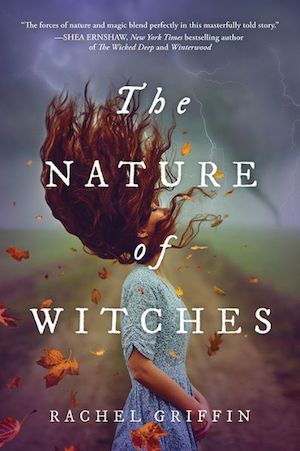
Rachel Griffin’s The Nature of Witches recently debuted with a splash, and rightly so. A new twist on the witch genre, the book centers around Clara and her climate-based magic. A rare everwitch, Clara is different from most of the students at the Eastern School of Solar Magic, whose power is tied only to a single season. But Clara’s magic comes at a price, killing her parents and best friends. Dealing with the trauma of loss, the awakening of her own powers, and struggling to figure out who exactly she is, Clara is a heroine worth rooting for. Griffin’s climate-based magic feels especially timely, in this unique YA standalone.
UNC-Chapel Hill — Legendborn by Tracy Deonn
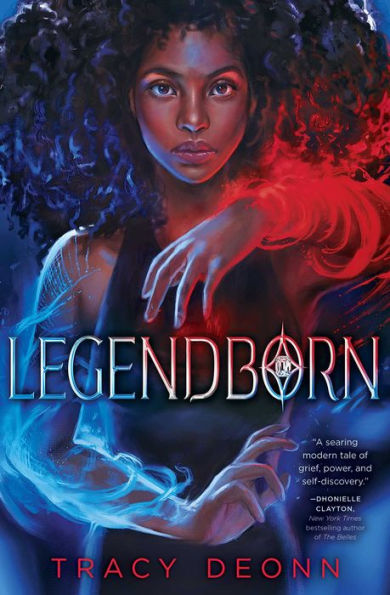
I know what you’re saying. “But Sasha, UNC-Chapel Hill is a real place not a fictional magic academy” to which I say, “If Tracy Deonn says it’s magic, then it’s magic!” Deonn’s brilliant debut follows 16-year-old Bree Matthews, a high schooler sent to the university as part of a program for gifted students. There, she discovers demons feeding on human energy and a secret society of students called Legendborns, whose job it is to stop them. This Arthurian retelling explores the deep, human connections between those called to save the world together. Wholly original and completely thrilling, Legendborn made me wish my college campus had more than a swing dance club and a coffee shop that was somehow always out of croissants. Legendborn is an instant classic.
Buy the Book
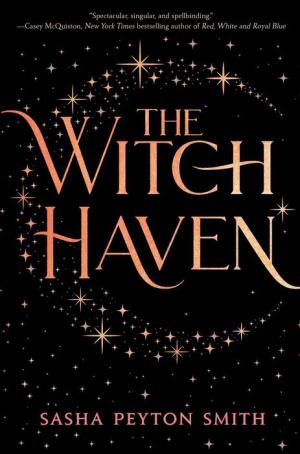

The Witch Haven
Sasha Peyton Smith grew up in the mountains of Utah surrounded by siblings, books, and one very old cat. She attended the University of Utah and the George Washington University where she studied biology and public health. She is not a witch, though she does own a lot of crystals and always knows what phase the moon is in. She currently lives in Washington DC.










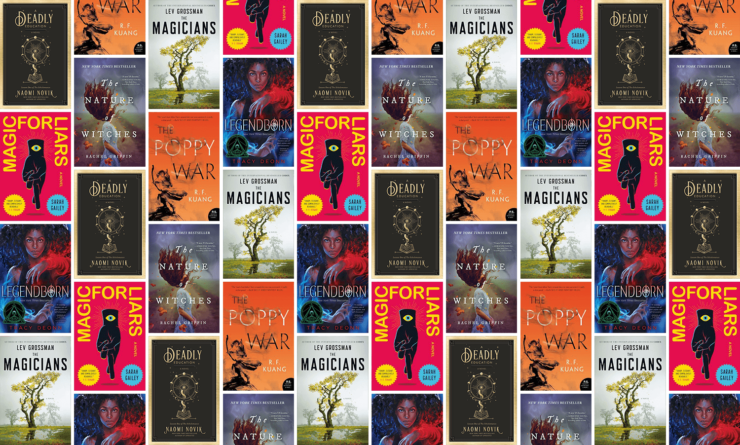
I guess Roke is a gimme :)
Excellent article!
An edge case: the male teaching staff in Fritz Leiber’s 1952 Conjure Wife Hempnell College believe their individual success reflects their academic prowess, personal appeal, and skill at committee-based backstabbing. In fact, their success rests mainly on the mystical talents of their respective spouses, each of whom is keenly aware that they are engaged in a Hobbesian sorcerous duel with every other wife on campus. I’d say it was secret but the men don’t pay close attention to their wives. It’s more overlooked. Well, not until our hero Norman Saylor discovers his adorable wife Tansy, otherwise a perfect accessory, is wasting her time with blatant superstition and puts a stop to it. This provides him with an unforgettable lesson in how magic works.
It’s very 1952, including the bit where having had magic explained to him by Tansy, Norman explains it back to her.
Nice list! I also think Bardugo’s Ninth House qualifies, even if it is a university.
I feel I should break a lance here for Discworld’s Unseen University. :)
Having said that, I would have loved to attend Brakebills, and party with the Physical Kids.
As Eliot describes it:
“Physical Kids: Telekinesis; move shit, lift shit. Most can fly. Also, magnificent partiers. Do not come by our house if you have anything to do the next morning.”
Per the Little Black Rule, in the Psionics Suppressions the Third Imperium revoked the charters of every Psionics Institute – but if you look closely at the (unclassified!) paperwork you will find that two of those revocations were themselves revoked… and one of those hidden-in-plain-sight Institutes is right here on Terra. (Word around the campfire is that its graduates have done fine work uncovering Solomani irredentist terrorists.)
The Mage Errant series is progression fantasy set in a school for magic in a world with demons, dragons, and other mythical creatures. The school features a vast magical library (yay! – best kind of magic school), but it also sits on top of a multi-level labyrinth full of dangerous monsters (worst kind of magic school).
Sunnydale High School is certainly magical and has a fairly comprehensive library available to those who need it, as well as a very competent librarian.
UNC, Chapel Hill, made me laugh, and I’m rather jealous because my alma mater is another UNC branch, and all we had was a haunted dorm.
I was going to mention MAGIC FOR LIARS. The main character is a pretentious jerk, sadly, but the “this is absolutely not Hogwarts, but it totally is Hogwarts” routine so common in these stories was funny.
The Avis Blackthorne “Wizard Magic School” by Jack Simmonds is young adult traditional fantasy.
“The Witch Squad” by MZ Andrews is a paranormal young adult mystery.
THE UNEXPECTED ENLIGHTENMENT OF RACHEL GRIFFIN by L. Jagi Lamplighter. Series. Young young adult fantasy.
“Toby’s Tale” series by Virginia Ripple. Middle school fantasy. Magical school for cat familiars and young magic users.
AMARI AND THE NIGHT BROTHERS by BB Alston. Middle school contemporary fantasy. African American heroine. Suitable for middle school to adult readers. A magical summer school.
“The Tapestry” by Henry H. Neff. Young adult contemporary fantasy. A finished series.
I can’t see anyone actually wanting to attend school at Sinegard if they’ve read The Poppy War.
@8 Sinegard itself wasn’t too bad. What you’re signing up for by going there on the other hand…
There was an olden timey story by one of those Unknown stalwarts whose names I have forgotten where the Big Twist was that the wizard student was miserable because while magic is ok, what he really wanted to do was study accounting.
Love magical boarding schools. (I even watched Fate: The Winx Saga on Netflix for this reason, even though it was getting pretty silly and over-the-top by the end. To be fair, the series is gorgeously shot on location in Ireland, and some of it has a decent amount of conviction.)
A College of Magics by Caroline Stevermer has a trans-Atlantic feel to it. I thought it was a bit uneven in terms of pace, but the world-building is interesting. Notably, at Greenlaw College, students don’t actually study magic at all; rather, it has to come to them organically, and that’s maddeningly elusive.
Honorable mention to Singing the Dogstar Blues by Alison Goodman, which is definitely more SF than fantasy, but is excellent.
I would enjoy a visit to Andrew Rowe’s school from the Arcane Ascension series. The classes seem useful and as long as you don’t choose dueling; less potentially lethal than most.
@@.-@: I would happily be a level 0 at UU!
Fans of magical boarding schools should check out Vita Nostra by Marina and Sergey Dyachenko. Let’s just say that students from the Institute of Special Technologies most likely would transfer to Brakebills or Scholomance in an eyeblink.
I saw Ursula Le Guin talk at the University of Washington back in the late 90’s. Someone asked her what she thought of Harry Potter. She admitted she hadn’t read it. But friends had recommended it to her, with something like “You have to read this, Ursula, it’s about A SCHOOL FOR WIZARDS!” The audience laughed at the gentle dig at Rowling. I didn’t know the idea had become such a prominent motiff in contemporary fantasy until I saw this article.
I wonder if Le Guin did originate the concept of a school for magic. If not, who did?
@11
The Robert Sheckley 1954 short story “The Accountant”
What, no love for Diana Wynne Jones’ Witch Week?
Witch Week is part of a whole series by DWJ.
Which has elements strangely similar to Hogwarts, despite being written decades earlier. /s
In Other Lands by Sarah Rees Brennan. I was burned out on magic school books and this is the one that sucked me back in.
@11
Robert Sheckley, “The Accountant” can be found in this collection.
Tomorrow’s Children: 18 Tales of Fantasy and Science Fiction.
https://www.goodreads.com/book/show/1045652.Tomorrow_s_Children
Where are Caroline Stevermer’s brilliant A College of Magics and A Scholar of Magics? I love the first one so much that I list Greenlaw College as my undergrad alma mater on Facebook.
Are we not going to talk about The University in the Kingkiller Chronicles? At all?
Sign me up for Drearcliff Grange School, please! Kim Newman managed to make me want to go back to school. :D
@8 MByerly I’m a UNC-CH alum (big part of the reason I picked up Legendborn!), and I promise you, I saw no trace of Arthurian (or any other kind) of magic on campus – could just mean I’m an out-of-the-loop civilian, but it does mean it’s possible to attend and have nothing more mystical than superstitious well-drinking and ghost stories in folklore class come across your path.
Apart from the occasional invasion by a hostile wolfpack and malevolent blue devils, it WAS a lovely school to attend, though. :)
Beautiful article, all of these books are on my PTR list – can’t wait to get to them! :D ♡♡
While I would likely want to attend the Scholomance if I was in that world and had magic, I do not think I would like to attend, if I were given the option to learn magic anywhere I wanted. The rate of attrition is high.
Mortal Instruments, of course,
Coven series LaVaun – such a quick fun tropey series with cool schools
Culling Trials/Shadowspell Academy KF Breene – Schoolomance lite
@3 Yes, Bardugo’s The Ninth House certainly qualifies.
Does the Pacific Institute of Technology in Real Genius count? I should hope so.
@29: Pacific Tech was based heavily on Caltech, to include a lot of the pranks and schemes. See this link for a correlation of many things in the movie with actual events in Caltech’s history (the site is a copy/paste from a now-defunct Caltech alumni site).
Chris Nuttall has two different series running in magical schools, Schooled in Magic with Whitehall, competing with Mountaintop. Think that series is up to 23 books plus sides. Then his Zero Enigma series with Judes as the school. Good reading.
Three anthologies of Fantastical Schools, too.
It’s been a long time since I’ve read them so I can’t speak to the quality of these but this series by E. Rose Sabin was published in the early 2000’s:
A School for Sorcery (2002) ISBN 0-7653-0289-6
A Perilous Power (2004) ISBN 0-7653-0859-2
When the Beast Ravens (2005) ISBN 0-7653-0858-4
Shadow of a Demon (2011) ISBN 978-1-55404-845-8
The Harton School is introduced in Mercedes Lackey’s The Wizard of London. It does not teach Elemental Magic. It teaches psychics and similar powers, outside the warrant of Elemental Sorcerers. It’s also a safe place for such children when they are shipped to England—as so many real-life children were—from the hot countries of the British Empire.
I really, really (and kinda still do, lol) wanted to go to Luke’s Jedi Academy on Yavin 4 in the old EU. I’ve written a decent amount of fanfic centered around it, lol. I love the idea of a Jedi Academy in a more nature-oriented setting and hopefully evolving a little past the ‘ivory tower’ mentality of the Old Republic Jedi.
@12 , also #8 and @25 : I went to look up Greenlaw college, and discovered that it’s at UNC-CH. Or at least, an article about the retirement of a well-loved English professor called him “the Lion of Greenlaw” — apparently Dr. Armitage’s office (and the English department) are in Greenlaw Hall. Armitage also has links to Oxford. Grains of truth?
Can I make a case for Transylvania Polygnostic University?
It’s sort of a magic school.
If not, there’s always good old IOU (Illuminati University).